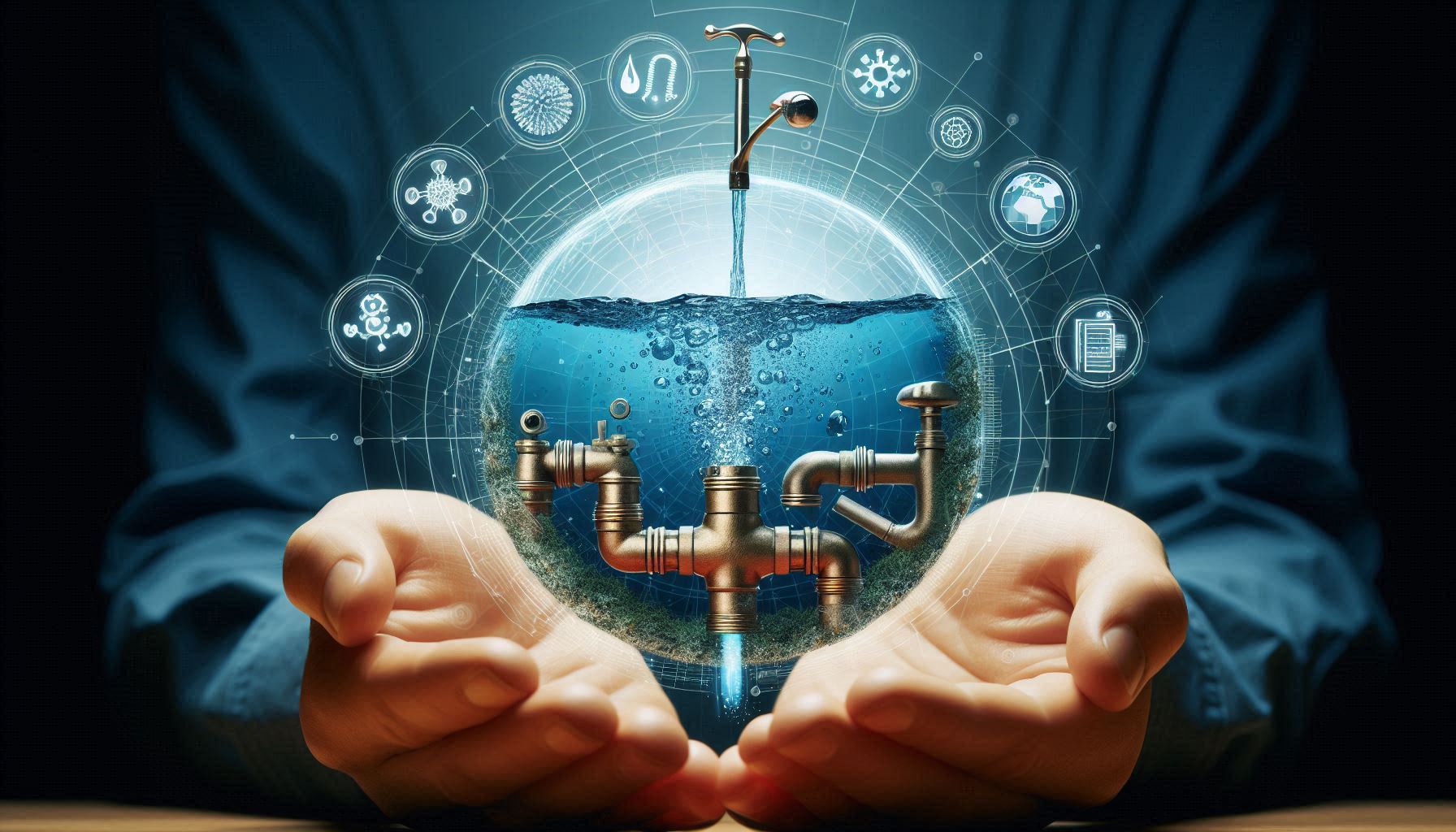Have you ever noticed white spots on your faucets, soap that doesn’t lather well, or even a buildup in your kettle? These could all be signs of hard water. Water hardness refers to the amount of dissolved minerals, especially calcium and magnesium, in your water supply. While hard water isn’t harmful to drink, it can cause major problems for your plumbing system over time. Understanding how water hardness affects your pipes can help you prevent expensive repairs.
Here, we’ll explain how hard water impacts your plumbing, what you can do to minimize the damage and provide research-backed information to support these claims.

How Water Hardness Damages Your Plumbing
Hard water can cause a range of problems in your home, but its impact on your plumbing system can be particularly damaging over time. Here is how:
Scale Buildup in Pipes
One of the most significant ways hard water affects your plumbing system is through scale buildup. When water containing high levels of calcium and magnesium flows through your pipes, it leaves behind mineral deposits. These deposits gradually build up, forming a substance known as “limescale.”
Over time, this limescale restricts water flow, causing your pipes to narrow. This can lead to reduced water pressure, water leak detection, and, eventually, clogged pipes. According to a study by the Water Quality Association, households with hard water experience more frequent plumbing issues compared to homes with soft water, particularly due to clogged pipes.
Damage to Appliances
Hard water not only harms your plumbing, but it also negatively affects water-based appliances like dishwashers, washing machines, and water heaters. As hard water runs through these appliances, minerals settle inside them, decreasing their efficiency.
For example, a study conducted by the Battelle Memorial Institute revealed that appliances in homes with hard water typically wear out 30% faster. Your water heater may take longer to heat water due to scale buildup on heating elements, making it less energy-efficient.
Leaks in Pipes
The buildup of minerals from hard water can also weaken pipes, causing them to leak over time. When limescale accumulates, it creates pressure points that put strain on your pipes. As the pipes weaken, small cracks may form, which can result in costly water damage.
A research study published by the American Society of Plumbing Engineers noted that homes with untreated hard water are more prone to pipe leaks than those with soft water.

Effects of Hard Water on Your Home
Hard water doesn’t just affect your plumbing; it can also lead to visible issues around your home, from stained surfaces to reduced water flow and increased energy costs. These are:
Staining of Fixtures and Surfaces
Have you ever noticed white, chalky stains on your sinks, tubs, or faucets? This is caused by hard water. These stains are not just an aesthetic issue, they indicate that your fixtures are being exposed to mineral deposits. Over time, this can lead to corrosion of your fixtures.
Reduced Water Flow
As limescale accumulates in your pipes, the inside diameter of the pipes becomes smaller, restricting water flow. This results in lower water pressure at your faucets and showerheads. While it may seem like a minor inconvenience, over time, reduced water flow can lead to bigger problems, such as pipe bursts or leaks.
Increased Energy Bills
When your appliances work less efficiently due to hard water, they consume more energy. For example, your water heater will take longer to heat water, which uses more electricity or gas. According to the U.S. Department of Energy, water heaters with limescale buildup can consume up to 25% more energy. This not only increases your energy bills but also shortens the lifespan of your appliances.
How You Can Minimize the Effects of Hard Water
While hard water can cause significant problems, there are effective solutions you can implement to minimize its impact and protect your plumbing and appliances.
Install a Water Softener
One of the best ways to combat the effects of hard water is by installing a water softener. A water softener removes excess minerals like calcium and magnesium from your water before it reaches your pipes. By softening the water, you can prevent scale buildup, extend the life of your plumbing, and reduce energy costs.
According to research by the Water Quality Research Foundation, homes with water softeners experience significantly fewer plumbing repairs and lower energy bills.

Regularly Clean Appliances and Fixtures
To minimize the effects of hard water on your appliances, make sure to regularly clean them. Descaling agents are available that can dissolve limescale buildup. Cleaning showerheads, faucets, and appliances regularly will help them last longer and run more efficiently.
Flush Your Water Heater
Flushing your water heater every six months can help prevent scale buildup. This involves draining the tank to remove any sediment or mineral deposits that have settled at the bottom. If not done regularly, limescale can form on the heating element, causing it to overheat and potentially fail.
Conclusion
Hard water is a common issue that can ruin your plumbing system over time. From clogged pipes to damaged appliances, the effects of hard water can be costly if left untreated. Installing a water softener and maintaining your appliances can save you money and headaches in the long run.
By taking proactive steps, you can protect your plumbing system and avoid the negative impact of water hardness on your home.









